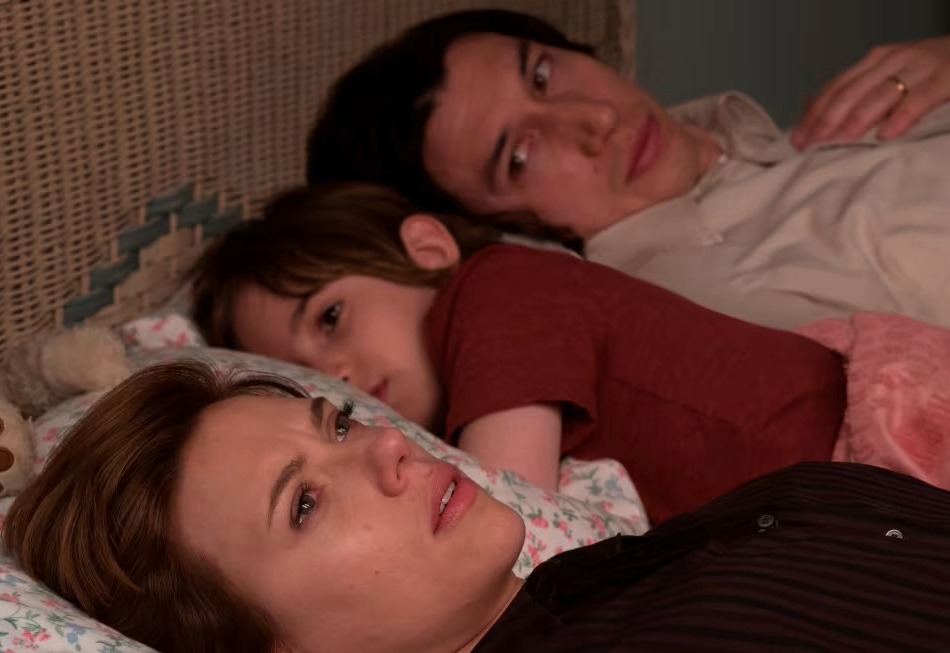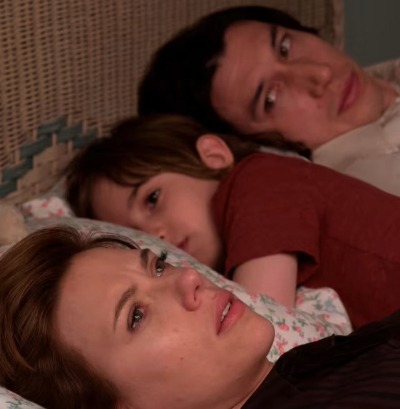5 films that help us recognize unhealthy relationships
Aleksa JovanovićNovember 20, 2025


When I started writing this piece, I thought it would be about fictional situations in films and about love that slowly turns into something else. Then I realized it is actually about that moment when you feel something is wrong deep in your stomach while a voice in your head says, I am overreacting. Pop culture often becomes a rehearsal space for real life, a place where we study our own patterns by watching other people’s mistakes. If we pay attention, films, books, and series draw very clear lines that lead us toward unhealthy relationships, yet we often watch them as simple drama.
I do not see these five titles as a checklist, but as a small school of intuition. Especially when it comes to the moment we say that it is enough. Each one offers a different lesson about what it looks like when someone’s boundaries shift little by little, so softly that you barely notice when they disappear. Even if some situations in these stories feel unrealistic or exaggerated, they still work as metaphors for much more familiar relationships where the ground slips quietly beneath your feet. This is why it matters to watch them without the illusion that they are only stories. Somewhere beneath the plot lies something we all recognize: the moment you understand that your reaction is not an exaggeration but a sign that you have believed in a story that slowly pushed you away from yourself. These titles remind us that intuition is not a whim, discomfort is not random, and no one has to wait for a dramatic climax to decide it is enough.
Blue Valentine (2010)
At the beginning, Dean played by Ryan Gosling appears to be everything the rom com logic loves emotional, devoted, spontaneous. His sentimentality and his desire to rescue Michelle Williams’s Cindy add a gentle glow to their relationship. As the film moves back and forth between the beginning and the end of their story, it becomes clear that this gentleness shifts into possessiveness and stagnation. Critics have long pointed out that the film portrays a relationship that was dysfunctional from the very start. One scene shows this with painful clarity. Cindy, exhausted and stripped down to the truth, says I am so out of love with you quietly, as if confessing something she has been hiding from herself. Dean arrives intending to help, yet ends up arguing with her in front of the staff, throwing things, and in a chaotic burst of anger, hitting a doctor. There is no care or tenderness in that moment. Only his need to keep the illusion of control and her attempt to finally step away from everything that weighed on her for years. It is the kind of scene that gives you an unmistakable ick because it reveals how deeply chaos was woven into their everyday life. If you have ever found yourself playing the role of someone who agrees to keep the peace just so things do not fall apart, Blue Valentine hits directly.
Marriage Story is a film that looks like it is about divorce on paper, yet at its core it is a story about what happens when partners stop being a team and become opponents. The film is so iconic in meme culture that even if you have never seen it, many scenes are probably familiar to you. One of them is the big fight between Charlie and Nicole, played by Adam Driver and Scarlett Johansson, inside the apartment. It is often quoted as an example of incredibly strong acting and painfully honest confrontation, but what is truly disturbing is not the shouting. It is the way they use the most intimate parts of each other’s lives as weapons. That scene also contains a moment that hits almost physically, one of the most shocking lines in the film. Charlie, frantic, exhausted, and completely shattered, tells Nicole a sentence no partner should ever hear: Every day I wake up and hope you are dead. Their performances are so convincing that the discomfort becomes tangible, as if you are trapped in the same room with them. It is not just a line said in anger. It is an admission of how far the urge to hurt someone you once loved can go. That moment exposes how long their relationship has been burning out from the inside. Laura Dern, who plays the lawyer Nora, later says that the system rewards bad behavior, referring to divorce as a legal battle. But the film actually shows how easily the same principle can slip into everyday relationships. It happens when you start collecting your partner’s mistakes like ammunition, when you watch your words because you know they will come back to you as accusations.
A horror film whose emotional core is much closer to everyday life than we would like to admit. Elisabeth Moss plays Cecilia, who escapes a relationship with Adrian, a wealthy and polished man who looks perfect on the outside and operates as a master of control on the inside. He does not leave bruises. He keeps her in a constant state of fear, uncertainty, and doubt in herself. The horror begins the moment she manages to run away, because only then do we realize that Adrian’s greatest power lies in his ability to control the narrative, not only people. Cee tries to explain what he did to her how he isolated her, gaslighted her, followed her, and kept her under control but the people around her want a tidy story, not a truth that is too disturbing. The most devastating moments are the ones in which she says completely rational things yet sounds unhinged because she has been trained so many times to distrust her own perception. The film turns this into literal horror mechanics, but the physical invisibility is not the scariest part. The real fear comes from recognizing the dynamic in which a partner knows exactly how to push you to the point where you no longer know what is real. The restaurant scene, one of the most shocking moments in the film, shows how Adrian manages to influence everyone’s perception even when he is supposedly dead. It may look extreme, yet the essence is familiar. An abuser knows how to use someone’s vulnerability as evidence against them. This is gaslighting in its most refined form.
The Girl on the Train is a film that appears on the surface to be a mystery thriller, yet it is actually a study of what it looks like when someone dismantles your sense of reality for years. Rachel, played by Emily Blunt, is an alcoholic who believes she is to blame for everything that has happened to her, because her ex husband Tom convinced her that she was violent, unstable, unreliable, and that she had embarrassed him many times. The hardest part to accept, even as a viewer, is how long she lives inside his version of the past. One of the most important moments in the film is when Rachel begins to realize that most of the memories she carried for years are not hers at all, but Tom’s construction. He used every slip, every moment of weakness, and every drop of alcohol to rewrite the story in which he always comes out as the victim. And she becomes a woman who learned to apologize even when she is not sure what she did wrong. He manipulated her distorted memories for so long, using alcohol as proof that she could not be trusted. It is gaslighting that lasts long enough to become the architecture of the entire relationship. This is what the film brings into the clearest light. The Girl on the Train reminds us that a toxic relationship does not have to look dramatic from the outside. Sometimes the most dangerous thing is exactly what looks quiet, orderly, and controlled while it slowly turns you into a person who no longer knows where the truth begins.
Promising Young Woman is often described as a revenge story, yet the core of the film is much more grounded and painful. It is about a culture that normalizes violence by presenting it as a misunderstanding, a moment of carelessness, or a youthful mistake. Cassie goes out to clubs, pretends to be blackout drunk, and watches how quickly a man will appear who wants to save her only to take her home and take advantage of her. These are not monsters from horror films. They are people who see themselves as good. The most dangerous among them is Ryan. Once a classmate, now a doctor, charming, funny, someone who seems like the opposite of everything Cassie despises. That is precisely why his red flag feels quiet and almost invisible. Cassie shows him the video of the assault from their college days and gives him a chance to tell the truth. To admit he knew what was happening. To acknowledge it. To say he is sorry. Instead, Ryan looks away immediately, tries to change the subject, and tells her she is overreacting. Humor becomes his defense mechanism and distance a way to protect the image he has of himself. This is the moment when it becomes clear that his goodness existed only when it cost him nothing. The first time he is confronted with his own share of responsibility, he chooses to step aside. It is a pattern we often recognize too late in real life. When someone prefers to minimize rather than honestly face what they did. When their reputation matters more than the consequences their actions left on someone else. When they run from the truth the moment it gets close instead of standing with it. Promising Young Woman works like a thriller, but it lingers because it shows something far more common. It reveals how easily we trust the good guy simply because we are taught not to question the mask of being good.